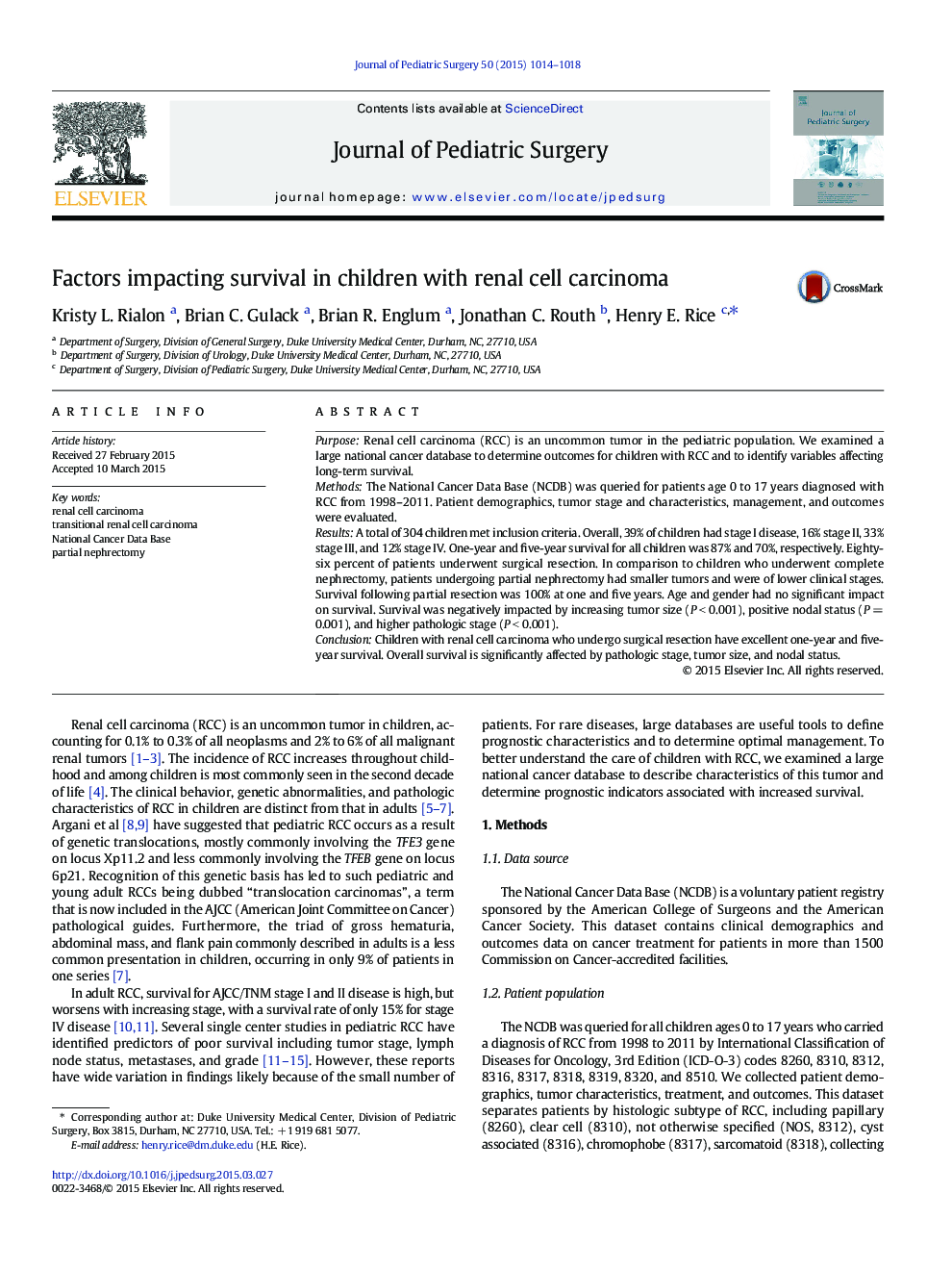| Article ID | Journal | Published Year | Pages | File Type |
|---|---|---|---|---|
| 4155057 | Journal of Pediatric Surgery | 2015 | 5 Pages |
PurposeRenal cell carcinoma (RCC) is an uncommon tumor in the pediatric population. We examined a large national cancer database to determine outcomes for children with RCC and to identify variables affecting long-term survival.MethodsThe National Cancer Data Base (NCDB) was queried for patients age 0 to 17 years diagnosed with RCC from 1998–2011. Patient demographics, tumor stage and characteristics, management, and outcomes were evaluated.ResultsA total of 304 children met inclusion criteria. Overall, 39% of children had stage I disease, 16% stage II, 33% stage III, and 12% stage IV. One-year and five-year survival for all children was 87% and 70%, respectively. Eighty-six percent of patients underwent surgical resection. In comparison to children who underwent complete nephrectomy, patients undergoing partial nephrectomy had smaller tumors and were of lower clinical stages. Survival following partial resection was 100% at one and five years. Age and gender had no significant impact on survival. Survival was negatively impacted by increasing tumor size (P < 0.001), positive nodal status (P = 0.001), and higher pathologic stage (P < 0.001).ConclusionChildren with renal cell carcinoma who undergo surgical resection have excellent one-year and five-year survival. Overall survival is significantly affected by pathologic stage, tumor size, and nodal status.
